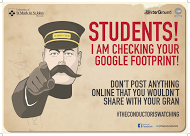What is Personal Development Planning (PDP)?
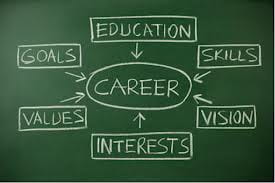 The QAA (2009: 2) states that ‘… PDP is a structured and supported process undertaken by a learner to reflect upon their own learning, performance and/or achievement and to plan for their personal, educational and career development. It is an inclusive process, open to all learners, in all HE provision settings, and at all levels. Effective PDP improves the capacity of individuals to review, plan and take responsibility for their own learning and to understand what and how they learn. PDP helps learners articulate their learning and the achievements and outcomes of HE more explicitly, and supports the concept that learning is a lifelong and life-wide activity.’
The QAA (2009: 2) states that ‘… PDP is a structured and supported process undertaken by a learner to reflect upon their own learning, performance and/or achievement and to plan for their personal, educational and career development. It is an inclusive process, open to all learners, in all HE provision settings, and at all levels. Effective PDP improves the capacity of individuals to review, plan and take responsibility for their own learning and to understand what and how they learn. PDP helps learners articulate their learning and the achievements and outcomes of HE more explicitly, and supports the concept that learning is a lifelong and life-wide activity.’
QAA (2009) Personal development planning: guidance for institutional policy and practice in higher education [online]. Available from: http://www.qaa.ac.uk/en/Publications/Documents/Personal-development-planning-guidance-for-institutional-policy-and-practice-in-higher-education.pdf [accessed 27/08/14]
The following headings should help you start to compile your PDP. Like your CV, your PDP should be a dynamic document that is regularly updated.
ABOUT ME
- First name:
- Last name:
CONTACT INFORMATION
PROFILE INFORMATION
 Provide a brief overview of yourself; include:
Provide a brief overview of yourself; include:
- What course are you studying?
- Any voluntary work you have undertaken and what you have enjoyed/learnt from your experiences.
- Any work you have undertaken and any attributes you have gained through your experiences e.g. team work, customer service …
- Any achievements you have to date e.g. coaching awards, short courses or recognised awards.
MY PLAN – THE BIGGER PICTURE
In the intitial stages of Personal Development Planning it is imperative that you set achievable goals, and to identify what you have to do, and what help you will need if you are going to achieve them.
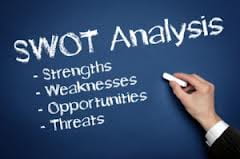 PDP is an opportunity to ask yourself big questions such as: What do you want from life? What sort of person do you want to be? What would be your ideal job once graduating from University? Don’t expect to answer these questions instantly. You may find undertaking a personal SWOT analysis; Strengths, Weaknesses, Opportunities and Threats will help you answer some of these questions. The following link provides excellent guidance – http://www.mindtools.com/pages/article/newTMC_05_1.htm. The process tends to work best if you think about your ambitions over time, seize every opportunity to practice the skills you need, and try out experiences to see if you like them.
PDP is an opportunity to ask yourself big questions such as: What do you want from life? What sort of person do you want to be? What would be your ideal job once graduating from University? Don’t expect to answer these questions instantly. You may find undertaking a personal SWOT analysis; Strengths, Weaknesses, Opportunities and Threats will help you answer some of these questions. The following link provides excellent guidance – http://www.mindtools.com/pages/article/newTMC_05_1.htm. The process tends to work best if you think about your ambitions over time, seize every opportunity to practice the skills you need, and try out experiences to see if you like them.
 It is a good idea to have an action plan that you keep revising it as you progress. Make sure you have as much information as possible to help in your decision-making, and identify people you can talk to about your learning and development as you go along. This section allows you to put a plan in place, see what goals are achieveable and what skill/experiences you need in place to achieve these goals.
It is a good idea to have an action plan that you keep revising it as you progress. Make sure you have as much information as possible to help in your decision-making, and identify people you can talk to about your learning and development as you go along. This section allows you to put a plan in place, see what goals are achieveable and what skill/experiences you need in place to achieve these goals.
Take one step at a time, plan to do things that are realistically achieveable by setting SMART objectives (http://www.mindtools.com/pages/article/newHTE_90.htm) and build up gradually.
My Action Plan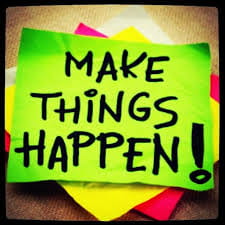
- What is my objective? What am I looking to achieve?
- Success criteria. How will I know when I have achieved my objective?
- What will success look like? What new knowledge or skills will I have? How will I use my new skills? Will I do things differently?
- Action. What do I need to do to achieve my aim?
- Who? Who, do I need to make contact with to achieve my objective?
- By when? What is the deadline for achieving my objective?
- Impact & further actions. Record what I have learnt and evaluate how successful I have been at achieving my objective. What have been the highlights and challenges and how will I use my new knowledge/skills? Highlight further actions and subsequent objectives.
MY CV
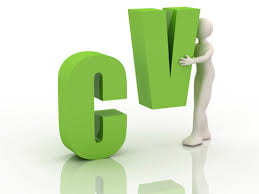 CV stands for curriculum vitae, which means a brief account of your career. CVs are used to explain to recruiters what you can do and what you have done, so a good CV looks forwards as well as accounts for what you did in the past.
CV stands for curriculum vitae, which means a brief account of your career. CVs are used to explain to recruiters what you can do and what you have done, so a good CV looks forwards as well as accounts for what you did in the past.
A CV should present your knowledge, learning, skills and competencies in a positive, honest way. Despite what you might have seen on The Apprentice, falsifying information on a CV gets you nowhere.
Upload a video or short film
 Upload a short film you have produced. This could be part of your coursework or a hobby of yours. You could even upload a short film of yourself, talking about your passions, and goals. This could be a great way of you getting yourself know when you are applying for a job. You could tailor a short clip for a job application, introducing yourself and why you have applied for the position. First impressions are the most memorable ones!
Upload a short film you have produced. This could be part of your coursework or a hobby of yours. You could even upload a short film of yourself, talking about your passions, and goals. This could be a great way of you getting yourself know when you are applying for a job. You could tailor a short clip for a job application, introducing yourself and why you have applied for the position. First impressions are the most memorable ones!
Blog
 Finally, think carefully about what exactly you’ve done. Keep a regular diary or blog (my page on recording placement experiences may help). Reflect on specific important events or experiences and how you dealt with them. When you receive back assessed work, don’t dwell on the mark, but take time to think about the feedback. Keep asking questions – how could you have done things differently?
Finally, think carefully about what exactly you’ve done. Keep a regular diary or blog (my page on recording placement experiences may help). Reflect on specific important events or experiences and how you dealt with them. When you receive back assessed work, don’t dwell on the mark, but take time to think about the feedback. Keep asking questions – how could you have done things differently?

